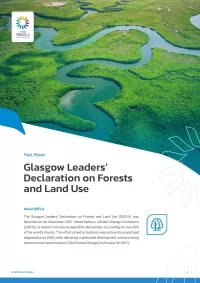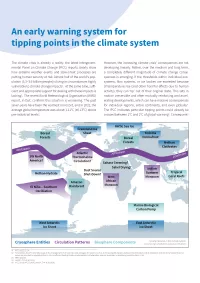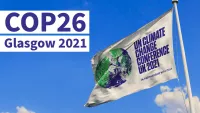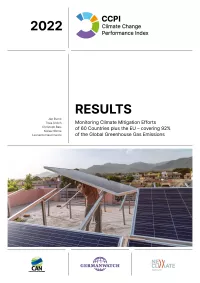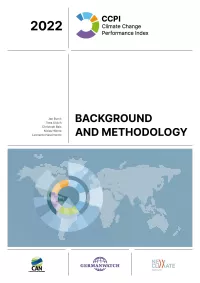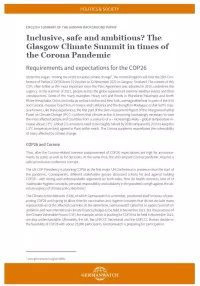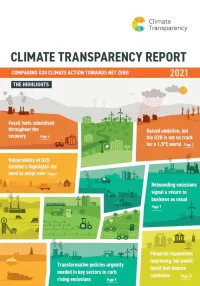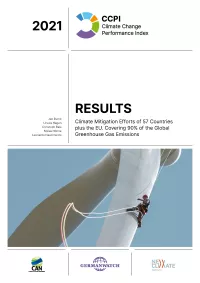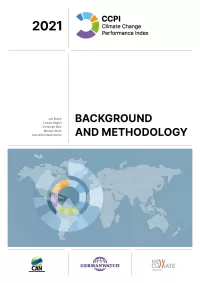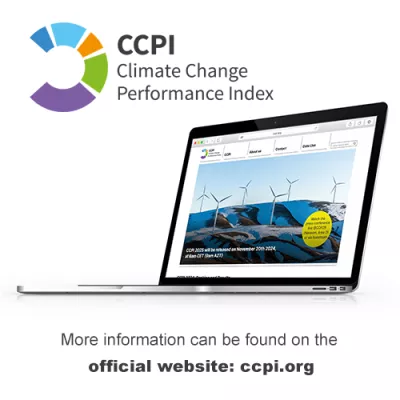Aktuelles zum Thema
At the UN Climate Conference in Glasgow (COP26), several multilateral initiatives were launched. In this fact sheet, we took a closer look at the Glasgow Leaders' Declaration on Forests and Land-Use (GDFLU) and its potential to close the 2030 ambition gap and implement climate action more quickly.
Outstanding scientific research is exploring tipping points’ development and dynamics. Lacking, however, is a systematic approach that translates scientific research into concrete recommendations. Also lacking are targeted calls for action for political decision-makers in affected countries and regions, as well as the international community. An early warning system in the form of a regular report could fill this gap.
The climate lawsuit of the Peruvian Andean farmer and mountain guide Saúl Luciano Lliuya against the energy company RWE has entered the decisive phase six and a half years after the lawsuit was filed: After a long delay, especially due to the Corona pandemic, a site visit took place this week in the Andean city of Huaraz. Judges of the Higher Regional Court (OLG) of Hamm (Germany), legal advisors and experts travelled to Peru to examine whether the plaintiff's house is threatened by a possible flood wave from the glacier lake Palcacocha above the city. The entire danger zone in Huaraz actually covers an area where around 50,000 people live.
The Climate Change Performance Index compares 60 countries and the EU in the areas of Greenhouse Gas Emissions, Renewable Energies, Energy Use and Climate Policy, thus providing a comprehensive overview of the current efforts and progress of the countries analysed. Besides, it measures how well countries are on track to meet the global goals of the Paris Agreement by evaluating the current status and future targets of each category with reference to a well-below 2°C pathway. This brochure explains the background and methodology of the Climate Change Performance Index.
The G20 countries have a special role to combat climate change - they are responsible for a majority of global emissions. This year’s Climate Transparency Report shows that the efforts of the G20 countries are currently insufficient to limit climate change to the 1.5°C agreed in the Paris Agreement. After a short period of decline, due to the COVID-19 pandemic, emissions are rebounding across the G20. However, a positive development is that the expansion of Renewable Energy capacities are rising.
The Climate Change Performance Index compares 57 countries and the EU in the areas of Greenhouse Gas Emissions, Renewable Energies, Energy Use and Climate Policy, thus providing a comprehensive overview of the current efforts and progress of the countries analyzed. Besides, it measures how well countries are on track to meet the global goals of the Paris Agreement by evaluating the current status and future targets of each category with reference to a well-below 2°C pathway. This brochure explains the background and methodology of the Climate Change Performance Index.

